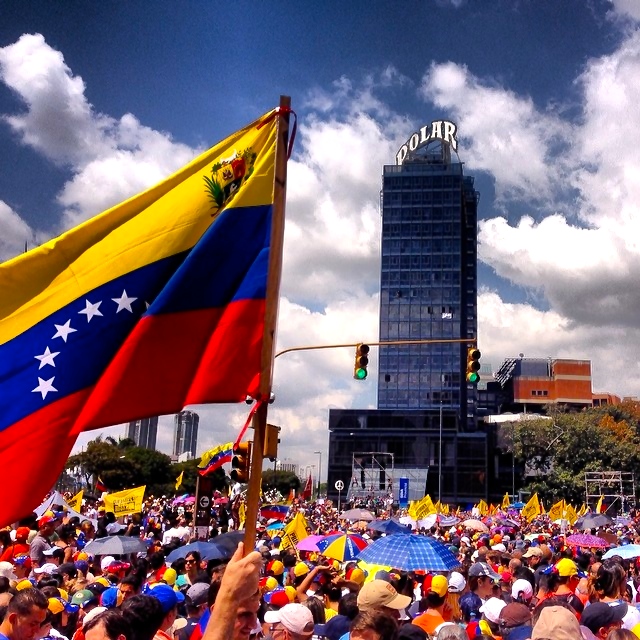Fleeing the economic collapse that has been destroying Venezuela since 2015, Esmeralda,
21, quit nursing school and left for Brazil with hopes of pursuing her education, finding a job, and providing for her family.
In her suitcase, Esmeralda packed her scrubs and books. Yet in Roraima,
Brazil’s northernmost state, her work uniform became something different altogether: a
short, tight dress and heels. Without many job opportunities, and facing discrimination from
Brazilian employers, Esmeralda is one of the hundreds of Venezuelan women who have been
pushed into sex work to make ends meet.
“My family doesn’t know I work like this, it would bring them shame. I didn’t study to have
this life,” she says, after hopping out of a client’s vehicle. Shame – and fear – are common
feelings among women like Esmeralda, especially when they have families waiting for them
in their home country. To avoid exposing her identity, Esmeralda chose not to disclose her
surname.
“I’m pregnant, and I don’t know what I’m going to do moving forward,” says Maria, a 36-yearold
former hairdresser who declines to give her last name. “[The baby is] my husband’s,” she
then explains, as if trying to set the record straight.
Maria has mailed food to her three kids, who are 14, 18, and 21 years old, and her husband,
all of whom are still living in Venezuela. She hasn’t told them how she earns the money to pay
for the goods she sends them. Some of Maria’s income still stems from her former trade: in
cities located on the outskirts of Boa Vista, she gives manicures and haircuts to her fellow
sex workers.
Since Venezuela’s economic collapse began in 2015, hundreds of thousands of Venezuelan
migrants have crossed the Brazilian border. According to data from the International
Monetary Fund, Venezuela has the world’s worst economic growth. Inflation rates should
spiral to 13,000 percent this year, and its currency has lost 99 percent of its value since
2012. As Matt O’Brien wrote for The Independent in 2016: “Venezuela is the answer to what
would happen if an economically illiterate drug cartel took over a country.”
Despite the migration free-flow that has been occurring for more than two years, it is only
now that the Brazilian government has decided to act on the migration crisis in northern
Brazil. President Michel Temer recently declared a “state of social calamity” and will send
resources to help the state government deal with the situation. Justice Minister Raul
Jungmann announced that 200 military troops will act on the border “not to forbid their
entry in Brazil, but to give some order to this process.”
Risky bussiness
In 2017 alone, more than 70,000 Venezuelan nationals have passed through Roraima –
especially now that Colombia has imposed barriers at its border. Over the past 45 days,
18,000 Venezuelans have applied for a Brazilian visa.
Around 40,000 of these refugees have stayed in Boa Vista, the state capital. Roraima is
isolated from other states by vast stretches of treacherous rainforest. A plane ticket to São
Paulo, for instance, usually costs over 1,000 BRL – more than the country’s minimum wage.
The sheer lack of options forces many Venezuelans to settle in Boa Vista, and they now
amount to over ten percent of the city’s population.
But though it is a state capital, Boa Vista is by no means a dynamic urban center – and
employment is lacking, with formal opportunities scarcer than many other cities in
Brazil. Unemployment rates have surpassed 11 percent, the highest of the state’s history.
The few available jobs often impose degrading work conditions. Aware of the desperation of
migrants, many Brazilian employers offer salaries far below normal rates, and for long hours.
The same happens in the sex work industry.
Since the 1990s, when gold miners started to occupy the region, the Caimbé district has
gained notoriety for its brothels and street prostitution. But since 2015, those activities have
intensified. Previously, sexual services were sold in the Caimbé district of Boa Vista for an
average of 100 BRL – that is, until the arrival of the Spanish-speaking call girls.
As the numbers of foreign women working in the streets have surged, the average price has
fallen to 80 BRL – a number that has become these women’s nickname: the ochenta(eighty, in
Spanish). The epithet has turned into a song, Xote das Ochenta, a ballad about a mean-spirited
man bargaining to lower a Venezuelan sex worker’s rate.
But in addition to payment problems, the ochenta are often forced to deal with violence.
Several of them are controlled by pimps, who lurk around the women disguised as coffee or
chocolate vendors. Whenever a man enquires about rates, the pimps approach to sell a treat
– but they are actually controlling how much the woman is charging for her services. Last
year, three men were arrested by the Federal Police for pimping and extorting women.
Nor are the clients any less dangerous.
Back in December, a Venezuelan woman was raped, stabbed and abandoned in a roadway
outside of Boa Vista. Yet despite the severity of the attack, she survived – and told the police
that the man attacked her after she refused to have sexual relations without a condom. The
suspect was identified, but he has not been arrested.
To avoid a similar fate, other girls have a security system. Whenever one of them hops into
the car of a client, the others use a rock to write the car’s license plate on the wall. “If she’s
away for too long, we call the cops,” explains Maria.
For many of the ochentas, like Michele and Valencia, the daily routine starts as early as 7 a.m.
The two 20-year-old friends arrived in Boa Vista two weeks ago, from the Venezuelan city of
Maracay. Their clients start coming soon after, looking for sex before going off to work. They
come back during lunchtime, and then again from 5 p.m. until the early hours of the next day.
Michele, a former nurse, is nostalgic about her days in Venezuela. “I loved my work helping
women to give birth. I had always dreamt of being a nurse,” she said as she headed towards
her next client’s car.
This article, written by Eliane Rocha was originally published by The Brazilian Report and is available here.







